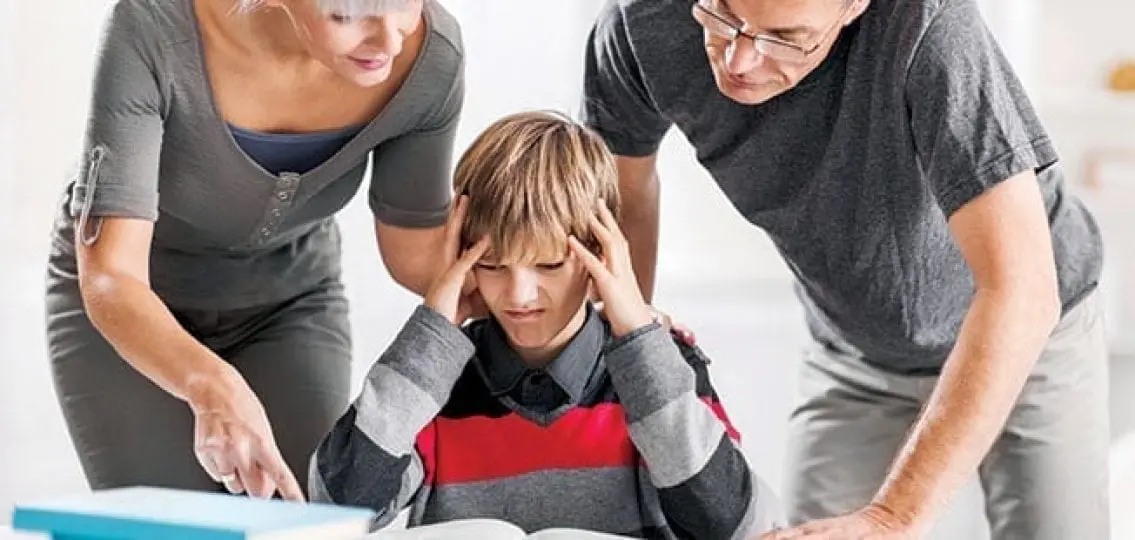My kids have long since emerged from the dark tunnel of middle school. But I remember those wondrous, bewildering, exasperating years all too well. We made so many middle school parenting mistakes. However, I can only see the answers of parenting middle schoolers with the benefit of hindsight. If I could do it all over again, there are five things I wish we had done differently. It’s too late for my kids, but there’s no reason you can’t profit from my middle school parenting fails.
My Parenting Fails:
1. Bringing their forgotten stuff to school
You see the forgotten lunch bag as soon as you get back from dropping them off. Honestly, your intentions are so pure. Your son shouldn’t go hungry (or have to sit out gym class, get a detention, or get a zero in English for forgetting items). Secretly, you kind of like being the hero, too, swinging into action to save the day for little Jack or Mackenzie. And the teacher will be impressed by what a dedicated parent you are! Plus, you can’t have a blemish on their sixth grade report card. They might not get into Dartmouth, right?
Don’t do it. You aren’t helping your kid to become a responsible, conscientious young adult. Guess what? He’ll forget his lunch again next week. Some kids only learn the hard way. By cushioning the blunt impact of the lesson, you are most assuredly guaranteeing it will happen again. The stakes for failure are the lowest they are ever going to be when they are in middle school.
From this point on, the consequences just get bigger and more painful. Let them fail now. If you bring the forgotten school report today, you are merely increasing the odds that junior year in high school he will “forget” his printed admission ticket for the SAT. And he will expect you to run it to him at 7:30 a.m. on some snowy February morning. Instead, help your son or daughter learn to plan ahead. Do not permit their poor planning to become your emergency.
2. Allowing my tweens to play video games after school
When my sons got home from school, they would grab a bowl of cheddar Goldfish and retire to the basement for Playstation. And I let them, because everyone needs a little break to clear their minds, right? For some foolish reason, I trusted them to be able to manage their own time. I assumed they would turn off the game and get on with homework. A classic middle school parenting mistake. Video games were like heroin to my older son. A half hour always turned into an hour or two.
My son usually ended up squandering the most productive portion of the afternoon. He left his homework for after sports practice—when he was physically and mentally exhausted. No surprise that his work product frequently suffered as a result or was altogether skipped.
By the time our youngest son was in sixth grade, we instituted a blanket rule: no video or computer games on school nights. Period. I wish we had done it earlier.
3. Letting my tween sons to quit piano lessons
We had a wonderful Russian piano teacher named Elena who came to our house for lessons. Every week, she implored my children to practice. My daughter was fairly diligent, but the boys hated the forced inactivity of piano lessons. They did the bare minimum and sighed and squirmed through their lessons. It felt like a waste of time and money, and just one more thing about which I had to nag them. We had homework, sports, after school clubs, chores, time with friends, and about a million other things they’d rather be doing—so I let them quit.
At some point in high school, after seeing an accomplished classmate perform at a school concert or assembly, each of my kids has turned to me and said wistfully, “I wish I could still play the piano.” Me too.
4. Telling my tweens that they’re smart
For years, I thought that my oldest son just wasn’t motivated by grades. He was so smart, after all. Whenever he came home with a disappointing grade, we would say something like, “You’re so smart. If you just tried a little harder, you could be getting an A.” We didn’t want to crush his little spirit.
So he did try—but only just a little bit. We had, in effect, given him permission to do the bare minimum in his schoolwork. Inadvertently, we had encouraged him to believe that being smart was enough to get good grades. If I could do it again, I would give him a big serving of “Toughen up, buttercup.” Instead of telling my precious snowflake how smart he was, I should have told him that success comes from effort, self-discipline, and preparation. No one succeeds simply because his mother has told him he is “so smart.”
5. Letting my tweens study in bed
Our daughter’s bed became a cozy nest of textbooks, fleece blankets, wrappers, tissues, dirty dishes, and nail polish bottles. Occasionally, it was so messy she had to sleep in the guest room.
For years, she had trouble falling asleep, struggling with racing thoughts and insomnia. Sometimes she fell asleep when she should’ve been studying.
I know now that she should not have made her bed a “home office.” In order to ensure a restful night’s sleep, our beds must be reserved for sleep. We should have insisted that she use her desk for studying, and her bed for sleeping. I could have saved her from those dark circles under her eyes and a few years of chronic exhaustion in high school.




